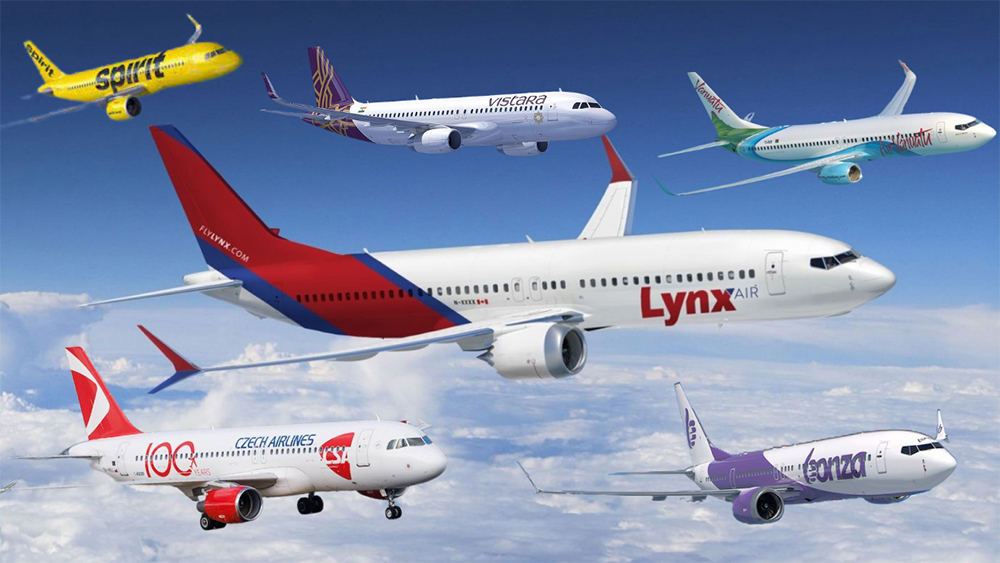|
Getting your Trinity Audio player ready...
|
Edited by: TJCNews.com
It’s an infuriating experience for any traveler: You arrive at the airport, only to be informed that you won’t be getting the premium seat you paid for. Instead, you’ve been involuntarily downgraded to a lower class. While it may seem like a rare occurrence, CNN recently reported that it happens more often than many passengers realize.
The CNN report highlighted that this issue is particularly frustrating when travelers have booked a premium economy, business-class, or first-class ticket, only to be reassigned to a lesser seat. This can be especially painful on long-haul flights, where passengers expect lie-flat seats, enhanced dining experiences, and the ability to rest comfortably. Anton Radchenko, the founder and CEO of AirAdvisor, has faced this issue twice in 2023—once on a Delta Air Lines flight from New York to Frankfurt and again on a British Airways flight from London to Los Angeles. As an expert in air passenger rights, Radchenko notes that most travelers are unaware of their entitlements, allowing airlines to take advantage of their lack of knowledge. According to CNN, airlines frequently resist offering compensation, making it essential for passengers to be well-informed.
Why Do Involuntary Downgrades Happen?
There are several reasons why passengers may experience involuntary downgrades. The CNN report indicated that among the most common is overbooking. Airlines operate on the assumption that some passengers will cancel or fail to show up, prompting them to sell more tickets than there are seats available. However, when every passenger arrives on time, some must be reassigned to lower classes. Radchenko’s personal experiences, as noted by CNN, were both caused by overbooking.
Another common reason cited by CNN is equipment changes. If an airline swaps out an aircraft for a smaller one with fewer premium seats, some passengers may be downgraded. The CNN report suggested that passengers who receive advance notice should contact the airline to explore alternatives, such as switching to a different flight that maintains their original level of service.
Crew rest needs can also factor into downgrades. CNN explained that for long-haul flights, crew members must have access to designated rest areas to ensure passenger safety. If these areas become unavailable for any reason, a first- or business-class seat may be reassigned to accommodate resting crew members.
What Can Passengers Do?
Given the increasing frequency of involuntary downgrades, CNN advises passengers to take proactive steps to protect their rights. According to Radchenko, airlines are often reluctant to compensate affected passengers, making it essential to understand what travelers are entitled to under international and domestic regulations.
Passengers on European Union flights are covered under EU Regulation 261/2004, which mandates compensation for downgrades. If downgraded, passengers may be entitled to a partial refund of their ticket price, calculated based on the percentage of the total distance flown. In the U.S., CNN highlighted that airline policies vary, making it crucial to check individual airline contracts of carriage.
For those experiencing an involuntary downgrade, CNN recommends immediately speaking with airline staff to request an alternative flight in the correct class. If no alternatives are available, passengers should ask about compensation and document all interactions with the airline. Keeping a record of emails, written communications, and even photos of boarding passes can be helpful when seeking reimbursement.
Understanding Your Rights in Case of a Downgrade
If an airline involuntarily downgrades a passenger, the first step is to document everything. Radchenko recommends getting a written reason for the downgrade and keeping evidence such as a photo of the new seat, a copy of the boarding pass, and any correspondence with the airline. These records will be crucial when requesting a refund. CNN’s report indicated that while airlines may initially resist paying compensation, passengers are legally entitled to receive the fare difference for the downgraded ticket.
How One Passenger Fought for a Refund
CNN recounted the experience of Radchenko, who was downgraded on a Delta flight from New York to Frankfurt. Originally booked in premium economy, he found himself reassigned to the main cabin. While Delta acknowledged that it provides compensation for involuntary downgrades, Radchenko had to push persistently to receive his refund. According to CNN, Delta ultimately refunded him $1,000—the difference between the original fare and the downgraded seat.
Delta explained to CNN Travel that refunds for downgrades depend on the difference between the fare paid and the new cabin assignment. Compensation may come in the form of SkyMiles, eCredits, or a direct refund. However, as CNN noted, airlines often prefer to issue flight vouchers instead of cash refunds. Radchenko, relying on his expertise as a consumer rights advocate, cited U.S. Department of Transportation (DOT) regulations, which stipulate that passengers are entitled to a refund of the price difference for involuntary downgrades. Despite Delta’s initial preference for offering flight credits, CNN reported that Radchenko stood firm and eventually received his rightful cash refund.
Why Refunds Can Be Tricky
CNN’s investigation into the issue highlights a major challenge: airline pricing is highly dynamic, making it difficult to determine the exact refund amount. The fare difference should be calculated based on the ticket’s price at the time of booking, but as CNN explained, airlines may use the most recent ticket price instead—often to their advantage. This means that if a passenger originally purchased a first-class seat at a great deal, but the most recent price for an economy seat is nearly the same, the airline may argue that little or no refund is necessary.
Radchenko warned in his CNN interview that airlines may attempt to minimize payouts by adjusting these calculations. Therefore, passengers must remain vigilant and demand transparency in how the refund is determined. CNN further advises travelers to review airline policies and DOT regulations to ensure they receive fair compensation.
The Importance of Persistence
As the CNN report illustrated, passengers should not expect airlines to make the refund process easy. Many companies prefer to offer vouchers or minimize payouts rather than issue a full refund. Radchenko’s experience serves as an example: while he eventually succeeded in securing his compensation, it required persistence and a firm but polite approach. CNN highlighted his key advice: passengers should be proactive, document their case thoroughly, and insist on their rights under DOT regulations.
CNN also reached out to other major airlines for clarification on how they handle refunds for involuntary downgrades. However, as of the time of reporting, these carriers had not provided responses. This lack of transparency underscores the importance of being informed and advocating for fair treatment when facing a downgrade.
Stay Informed and Stand Your Ground
CNN’s reporting on airline downgrades reveals a critical takeaway for travelers: knowing your rights and being persistent can make the difference between receiving a proper refund and accepting a loss. The experience of Radchenko highlights the importance of documenting everything and refusing to accept vague compensation offers.





